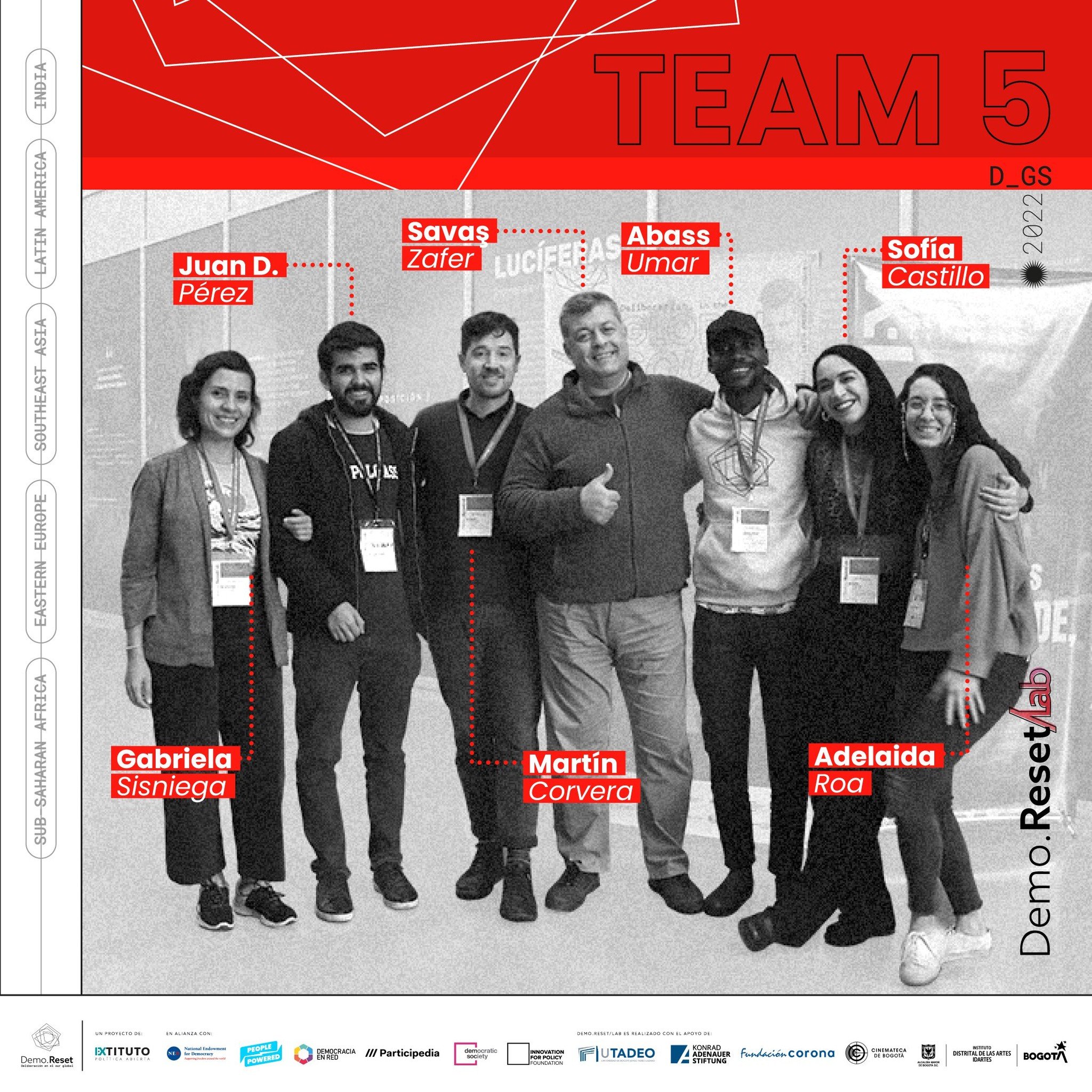Democracy residencies bring organizations together for joint projects
/“We speak different languages, and we have different material conditions and civic spaces available to us. But we are all fighting a common ‘virus’: un-democratic practices in times of crisis.”
That’s Sofia Castillo, of SUR (Institute of the Urban South) in Mexico and a participant in the new Democracy Residencies program. Designed to match individuals working to solve democracy challenges with host organizations with relevant expertise, the residencies are co-led by Extituto de Política Abierta and People Powered, with funding from the National Endowment for Democracy and One Project.
The idea for the residencies came from two, similar programs organized by People Powered and Extituto, thus combining them into one, stronger, joint initiative. For People Powered, the residencies were one of the projects prioritized by our members for funding in 2021.
“People Powered members are leading work around the world to build a more participatory democracy. Each year, we ask them to decide how to allocate hundreds of thousands of dollars from the People Powered budget, to better address their needs. They voted to prioritize in-person member exchanges, and the residencies program brings that idea to life,” says Josh Lerner, executive director of People Powered.
For Extituto, the residencies are the next stage of its Demo.Reset program, designed to build collective knowledge on deliberative democracy and share ideas across the Global South.
“We're working with more than 100 organizations in Latin America, sub-Saharan Africa, Southeast Asia, India and Eastern Europe,” explains Sebastián Calderón, one of Extituto’s co-founders and coordinator of Demo.Reset. “The first phase was to identify the initiatives and main practitioners across the Global South that are working on deliberative democracy or democratic innovation. The second stage was an in-person lab in which we identified the main barriers and challenges that we as the Global South have. And now, some of the ideas for solutions will be developed during the residencies.”
Sebastián says two types of barriers were identified: structural (cultural, political, social) and functional (having to do more with the project itself, like difficulties making decisions or a lack of inclusivity for marginalized people). One of the main outcomes of the lab was a methodology to design a democracy “prototype,” so to speak, by tapping into people from different backgrounds and perspectives.
“It was a big challenge to integrate diverse perspectives,” reflects Sofia, from SUR (Institute of the Urban South) in Mexico. “We were all from different parts of the Global South, we spoke different languages, and we have different material conditions and civic spaces available to us. But it was beautiful, because we had so much collective intelligence. And we are all fighting a common ‘virus’ (un-democratic practices in times of crisis). We must continue exercising these Global South muscles. Despite our differences, we have big common areas. And we all want to advance deliberative democracy in the Global South, because we are seeing amazing results in the Global North.”
The project idea (called a prototype) that Sofia worked on was a system of incentives designed to motivate local authorities to engage in deliberative democracy to manage crises (such as climate change, whether budgetary or political). Her team of 11 included participants from Colombia, Chile, Turkey and Sierra Leone.
Sofia’s team at the Demo.Reset lab was composed of 11 included participants from Colombia, Chile, Turkey and Sierra Leone.
During the residency program, which began in February and will extend through May, participants are developing innovative tools and projects that address common challenges faced by advocates of participatory and deliberative democracy. The process also is designed to allow them to forge connections with other organizations and practitioners and learn from experiences and good practices in different regions.
For example, Sofia is participating as a resident hosted by Consorcio CILA in a project to develop another regional hub for People Powered as well as a “launch kit” to help start others in the future. Regional hubs work to connect participatory democracy advocates across countries to better address region-specific challenges and opportunities.
The hosts, residents and their projects are:
Interactive platform for youth engagement
Host organization: Change Mind Change Future, Kenya
Resident organizations: Extituto, Colombia; Africa’s Voices Foundation, Kenya; Centre for Peace Advancement and Socio-Economic Development (CPAED), Nigeria; Cameroon for a World Beyond War
Farming democracy and sustainability
Host: Samvardhan Samaj Vikas Sanstha, India
Residents: Centre for Environment Education, India; Innovations 4 Development, Uganda
Regional hubs development
Hosts: Consorcio CILA (Asuntos del Sur/Ciudadania Inteligente)
Residents: Sur Institute, Mexico); Extituto, Colombia; Ollin, Mexico
Trust-building in socio-environmental conflicts
Host: Politize!, Brazil
Residents: Katy Rubin, legislative theater practitioner, UK/USA; Extituto, Colombia
Global survey of participatory budgeting participants
Hosts: Instituto de Investigaciones Políticas-Universidad Nacional de San Martín, Argentina
Resident: Red Nuestra Córdoba, Argentina
Summer school/academy for participatory democracy practitioners and researchers
Host: Ollin, Mexico
Residents: Participatory Governance Initiative, Arizona State University; Juventude Negra Política, Brazil





